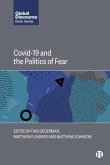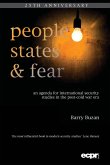Furedi argues that the traditional terms "left" and "right" have been both distorted and proved inadequate by a number of developments, notably the Cold War, the Culture Wars and (as he's shown in previous books) the prevalance of risk-adverse managerialism. The result is a politics (both big P and little p) that fails to take humans seriously as humans and which, necessarily, evades discussion of right and wrong. Furedi shows that the single most important political need is for an adequate conception of humanity (and, in the process, the public) and that it is this that will produce a new and more imaginative alignment in politics.
Bitte wählen Sie Ihr Anliegen aus.
Rechnungen
Retourenschein anfordern
Bestellstatus
Storno








